Small country holds its breath before the risk of Sino-Indian war
The tiny kingdom of Bhutan is completely dependent on India for its territorial security amid escalating Sino-Indian tensions.
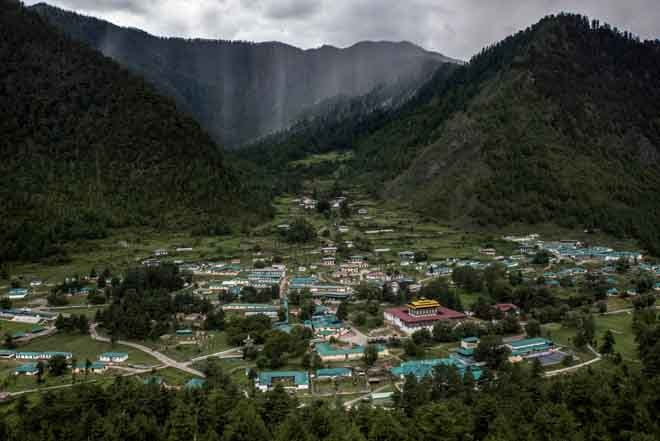 |
| Indian army headquarters in Bhutan, near a disputed hotspot with China. |
According to the New York Times, India's military base in Bhutan is only about 20km from the hot spot of the Sino-Indian territorial dispute.
In June, China began building roads in the disputed area and India mobilized troops to stop it. This action erupted into Sino-Indian tensions that have lasted for more than 50 days.
Standing between two nuclear-armed nations poised for war is the Kingdom of Bhutan. The small mountain nation has a population of just 800,000. Many people don’t know where Bhutan is, but they’ve all heard the story of it being the happiest country in the world.
India says it intervened in the border dispute at Bhutan’s request. But the move has not been met with gratitude from Bhutan. Many locals feel stifled by India’s defense of their country.
“If a Sino-Indian war breaks out, we will be the meat in the sandwich,” said Pema Gyamtsho, leader of the opposition party in the Bhutanese parliament.
Fifty years ago, the Bhutanese watched with their own eyes as China took control of Tibet, a land with ethnic, religious and cultural ties to the tiny kingdom.
India offered to defend the kingdom and Bhutan readily agreed. But amid escalating tensions, many Bhutanese feel India has become a barrier to their expanding diplomatic and trade ties with China.
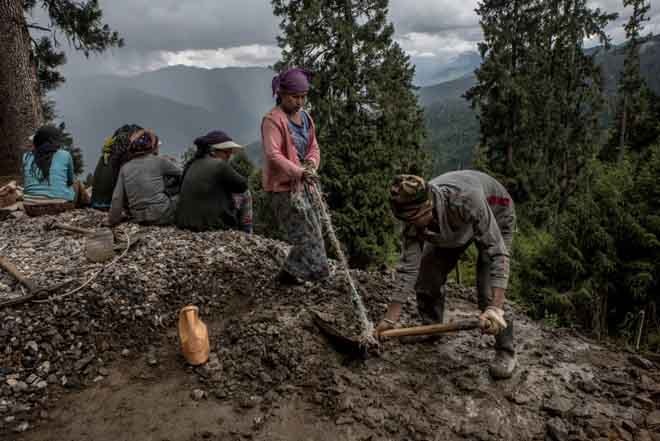 |
| Indians helped expand the road network in Bhutan. |
“Bhutan has the right to speak up about its way of life and how it expands its international relations,” said Wangcha Sangey, head of the Bhutan Chamber of Commerce and Industry.
According to the New York Times, it seems that India rushed to confront China in June without Bhutan's consent. Bhutan protested China's construction but avoided mentioning asking India to intervene.
In Haa, a small village near a disputed territorial flashpoint, Sino-Indian tensions are like lightning bolts warning of an approaching storm, worrying but not serious.
A resident of Haa said he saw Chinese soldiers building trenches along the border while he was grazing cattle. Bhutanese authorities later banned people from going near them.
This has disrupted the lives of the Bhutanese community, who are unable to cross the border to trade with another village in Tibet.
For many years, Bhutanese traders brought many precious medicines and medicinal herbs to Tibet. In return, they brought back home electronic goods, carpets, fabrics and clothes.
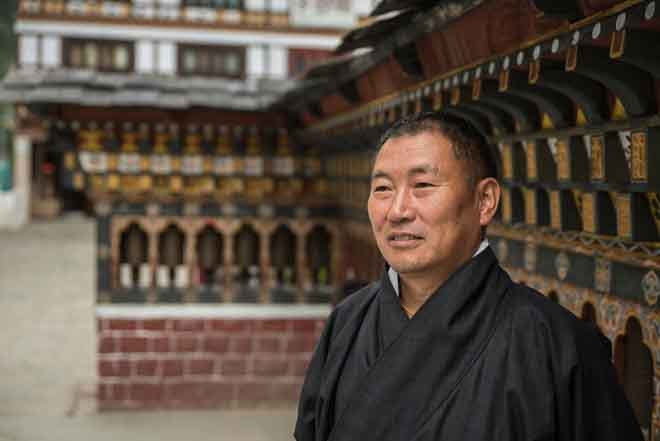 |
| Mr Pema Gyamtsho said Bhutan should not have to choose between China or India. |
Mr Pema Gyamtsho said Bhutan should not have to choose between China or India.
For a country with a GDP per capita of $2,751 (2016 figures), trade is vital.
Nima Dorji, a shopkeeper in Haa, said he had not received any supplies since the border closed. Mr. Dorji was worried that he would have to look elsewhere for goods. “We don’t want to talk about it much. It’s very sensitive.”
Bhutanese officials have been careful not to say anything that could hurt China or India. Bhutanese media have not reported any information about the border tensions.
Bhutan currently has four disputed border areas with China. Two are in the north and two are in the west, including the Doklam plateau. In 1998, China offered to cede the northern area to Bhutan in exchange for two areas in the west.
Bhutan has essentially agreed but the two countries have never signed a confirmation agreement. Given the escalating tensions, it is unlikely that Bhutan will sign a treaty with China.
Since signing a treaty with India in 1949, Bhutan has been completely dependent on New Delhi for its territorial defense. Today, India trains and pays Bhutanese soldiers while its army of engineers builds many roads in Bhutan. The number of Indian troops present in Bhutan has never been disclosed.
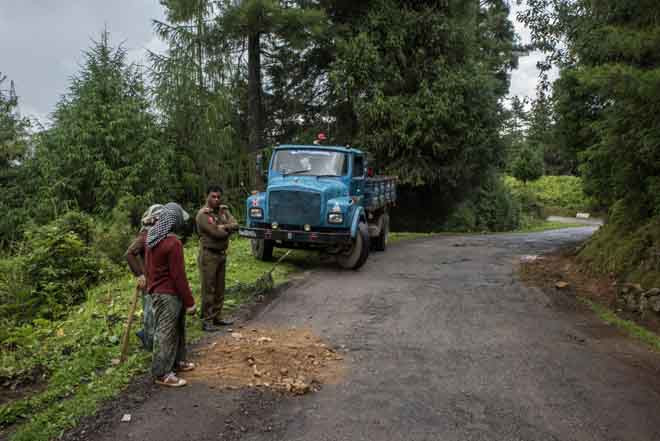 |
| Indian officers monitor workers' activities in Bhutan. |
Bhutan's stance appeared to have changed when the new king of Bhutan came to power in 2006. Under the young king's leadership, Bhutan began to open up more to China.
One of the main reasons Bhutan is looking to China is money. Not just economic, tourism is also one of the biggest industries in this small country.
Indians do not need a visa to visit Bhutan, but Chinese tourists must pay $250 a day, including travel expenses. Last year, for the first time in history, more Chinese tourists visited Bhutan than any other country except India.
Pema Tashi, a travel agent who caters to Chinese tourists, complained that there are no direct flights from Bhutan to China. Mr. Tashi questioned India's role in preventing Bhutan from normalizing relations with China.
“We are trying to ensure the interests of our big brother,” Mr. Tashi said, referring to India. “But our big brother is worried that if we get closer to China, we will change.”
According to Dan Tri
| RELATED NEWS |
|---|



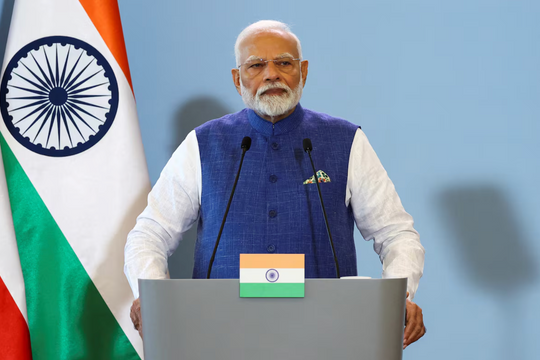
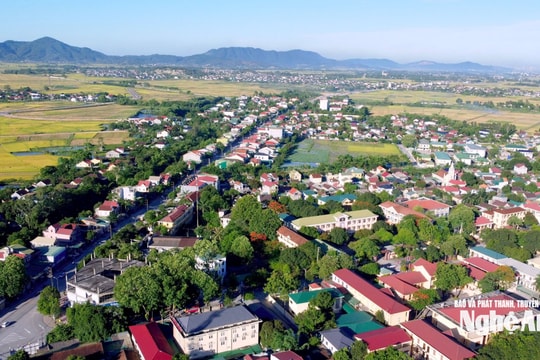
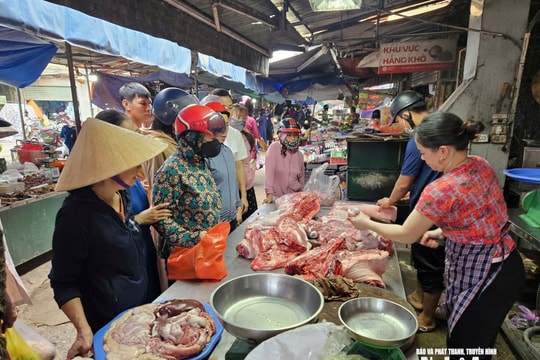
.jpeg)

